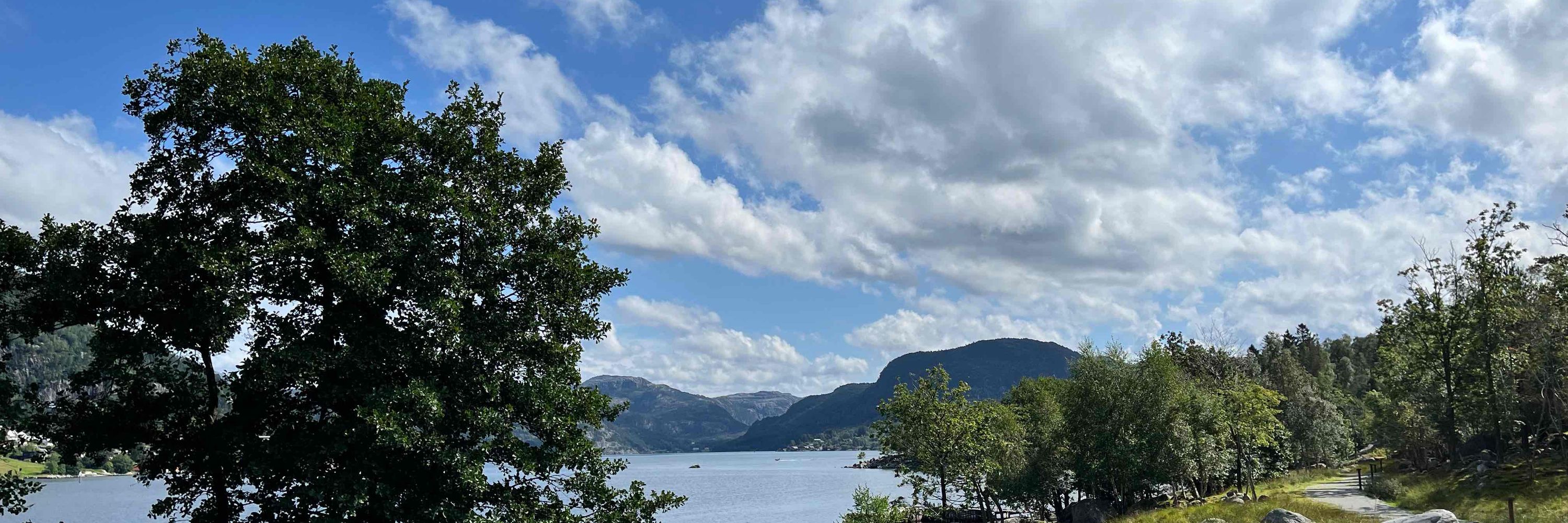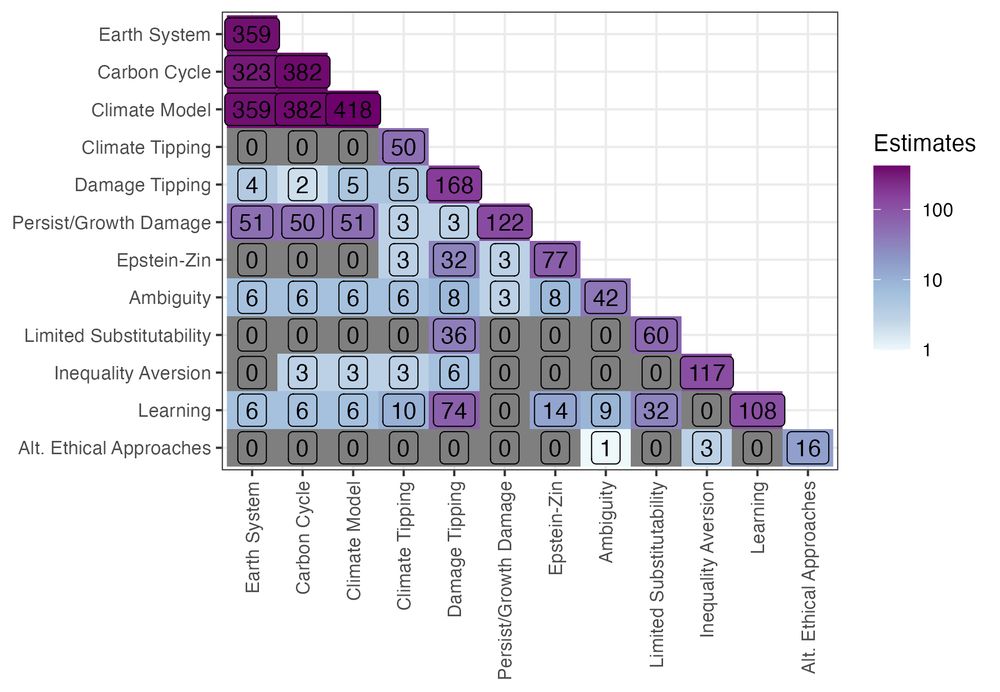
Moritz Drupp
@moritzdrupp.bsky.social
Professor for Sustainability Economics at University of Hamburg, soon —> ETH Zürich. #climate #biodiversity #pollution #health #inequality
https://sites.google.com/a/fulbrightmail.org/moritzdrupp
https://sites.google.com/a/fulbrightmail.org/moritzdrupp
Many congratulations and welcome to Zürich!!
September 3, 2025 at 5:37 PM
Many congratulations and welcome to Zürich!!
Conclusion:
Tackling climate change & inequality requires an integrated perspective. Neither challenge can be fully understood in isolation—nor can policy succeed if it ignores their interdependence. We close with thoughts on a roadmap for future research at the inequality-environment nexus.
Tackling climate change & inequality requires an integrated perspective. Neither challenge can be fully understood in isolation—nor can policy succeed if it ignores their interdependence. We close with thoughts on a roadmap for future research at the inequality-environment nexus.
September 1, 2025 at 11:28 AM
Conclusion:
Tackling climate change & inequality requires an integrated perspective. Neither challenge can be fully understood in isolation—nor can policy succeed if it ignores their interdependence. We close with thoughts on a roadmap for future research at the inequality-environment nexus.
Tackling climate change & inequality requires an integrated perspective. Neither challenge can be fully understood in isolation—nor can policy succeed if it ignores their interdependence. We close with thoughts on a roadmap for future research at the inequality-environment nexus.
3️⃣ Redistribution (e.g. carbon dividends) can overturn potentially regressice policy costs, but has an ambiguous effect on environmental outcoems.
September 1, 2025 at 11:28 AM
3️⃣ Redistribution (e.g. carbon dividends) can overturn potentially regressice policy costs, but has an ambiguous effect on environmental outcoems.
What does the evidence to date say?
1️⃣ Environmental benefits (like cleaner air) are often distributed pro-poor.
2️⃣ Policy costs (like carbon taxes) can be regressive—but context and design matters.
1️⃣ Environmental benefits (like cleaner air) are often distributed pro-poor.
2️⃣ Policy costs (like carbon taxes) can be regressive—but context and design matters.
September 1, 2025 at 11:28 AM
What does the evidence to date say?
1️⃣ Environmental benefits (like cleaner air) are often distributed pro-poor.
2️⃣ Policy costs (like carbon taxes) can be regressive—but context and design matters.
1️⃣ Environmental benefits (like cleaner air) are often distributed pro-poor.
2️⃣ Policy costs (like carbon taxes) can be regressive—but context and design matters.
We highlight three key channels linking inequality and the environment:
1️⃣ How environmental benefits vary with income
2️⃣ How policy costs are distributed across households
3️⃣ How inequality and redistribution shape environmental outcomes
1️⃣ How environmental benefits vary with income
2️⃣ How policy costs are distributed across households
3️⃣ How inequality and redistribution shape environmental outcomes
September 1, 2025 at 11:28 AM
We highlight three key channels linking inequality and the environment:
1️⃣ How environmental benefits vary with income
2️⃣ How policy costs are distributed across households
3️⃣ How inequality and redistribution shape environmental outcomes
1️⃣ How environmental benefits vary with income
2️⃣ How policy costs are distributed across households
3️⃣ How inequality and redistribution shape environmental outcomes
Summary:
Environmental degradation and economic inequality are two defining challenges of the 21st century. In this article, we synthesize how they interact—and why reseacher and policymakers should not treat them in isolation.
Environmental degradation and economic inequality are two defining challenges of the 21st century. In this article, we synthesize how they interact—and why reseacher and policymakers should not treat them in isolation.
September 1, 2025 at 11:28 AM
Summary:
Environmental degradation and economic inequality are two defining challenges of the 21st century. In this article, we synthesize how they interact—and why reseacher and policymakers should not treat them in isolation.
Environmental degradation and economic inequality are two defining challenges of the 21st century. In this article, we synthesize how they interact—and why reseacher and policymakers should not treat them in isolation.
Many congratulations to @pbasaglia.bsky.social & @fpavanello.bsky.social & big thanks to @auffhammer.bsky.social & @waldomarz.bsky.social as well as the whole @cesifo.org team for organizing yet another great workshop!!
March 15, 2025 at 7:11 PM
Many congratulations to @pbasaglia.bsky.social & @fpavanello.bsky.social & big thanks to @auffhammer.bsky.social & @waldomarz.bsky.social as well as the whole @cesifo.org team for organizing yet another great workshop!!
Many congratulations, Leonie 🎉
March 5, 2025 at 4:24 PM
Many congratulations, Leonie 🎉
Very glad to be visiting this week and looking forward to the discussions!
March 4, 2025 at 8:54 AM
Very glad to be visiting this week and looking forward to the discussions!
Don’t have a particular insight into the ruling, but the product has protected my head very well when I got hit by a truck on the bike, so it’s very sad to see this discontinued.
January 15, 2025 at 6:01 PM
Don’t have a particular insight into the ruling, but the product has protected my head very well when I got hit by a truck on the bike, so it’s very sad to see this discontinued.
I'd say there is a strong case to be made that more philosophising is needed in SCC-work. @paulkelleher.net, we had a structural extension category "Alternative Ethical Approaches", which didn't make it into our featured categories due to low N & is also rarely coupled with other extensions (Fig S4)

December 18, 2024 at 10:00 PM
I'd say there is a strong case to be made that more philosophising is needed in SCC-work. @paulkelleher.net, we had a structural extension category "Alternative Ethical Approaches", which didn't make it into our featured categories due to low N & is also rarely coupled with other extensions (Fig S4)
😅 this was also the most difficult survey yet to answer that I've sent out - but I had a hunch that you'd enjoy some of the qualitative comments 😀 I think a combination of what determines what we call the "SCC wedge" plus qual-comments is a useful indication for where SCC research may be headed
December 18, 2024 at 7:44 AM
😅 this was also the most difficult survey yet to answer that I've sent out - but I had a hunch that you'd enjoy some of the qualitative comments 😀 I think a combination of what determines what we call the "SCC wedge" plus qual-comments is a useful indication for where SCC research may be headed
Many congratulations, Christina, sounds like a great project!
December 16, 2024 at 10:25 PM
Many congratulations, Christina, sounds like a great project!
With our teaching, we seek to stir students’ enthusiasm for the possibilities in which economic theories & empirical methods can help to better understand and manage sustainability challenges. We furthermore actively contribute to the societal debate & help to improve public policy.
December 12, 2024 at 12:00 PM
With our teaching, we seek to stir students’ enthusiasm for the possibilities in which economic theories & empirical methods can help to better understand and manage sustainability challenges. We furthermore actively contribute to the societal debate & help to improve public policy.

